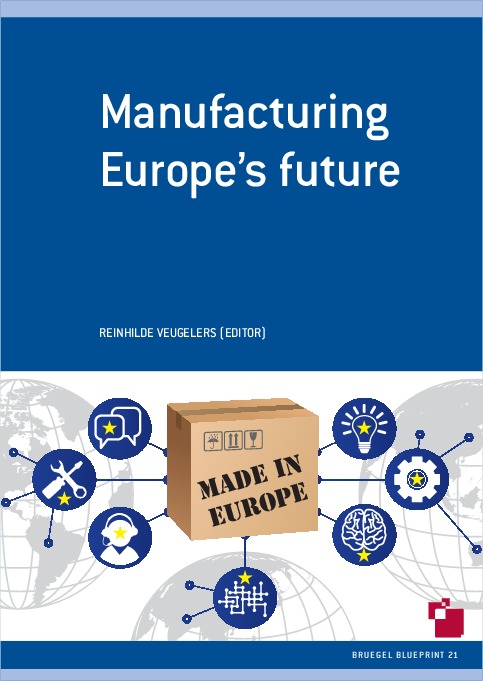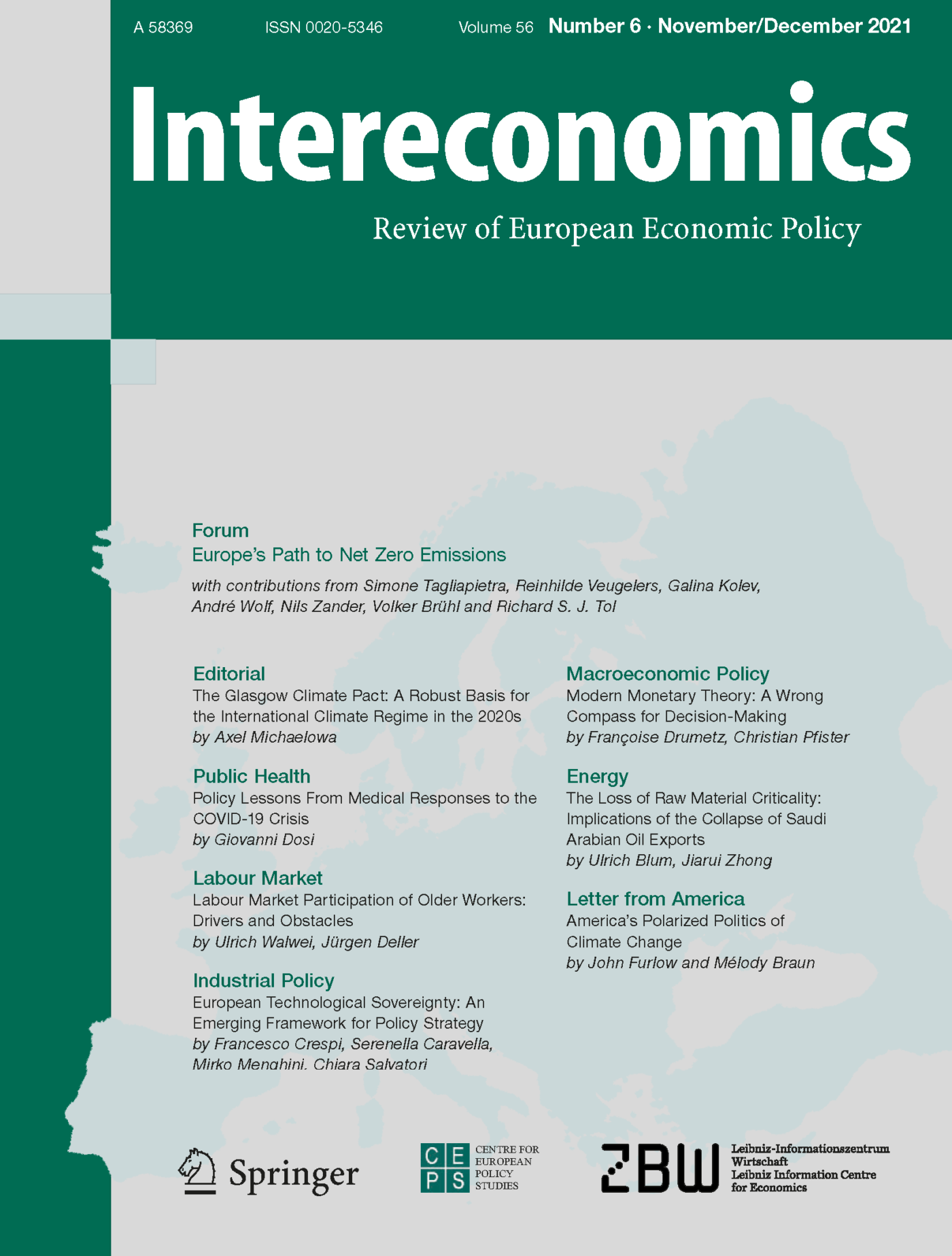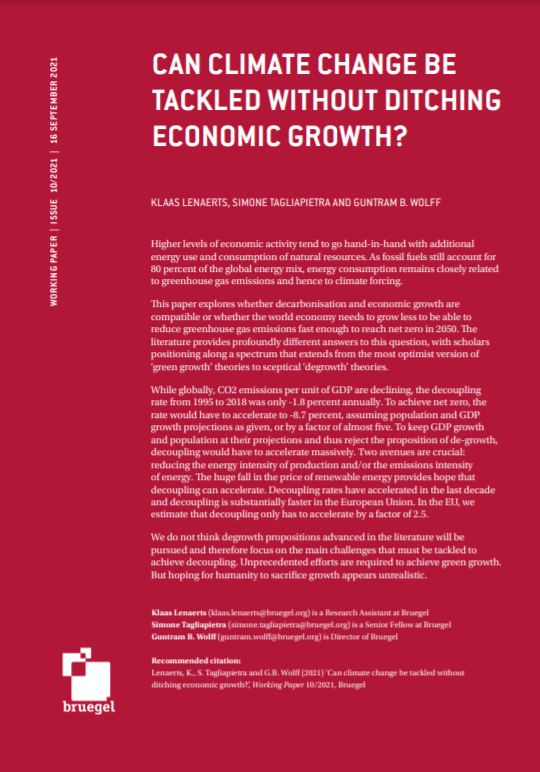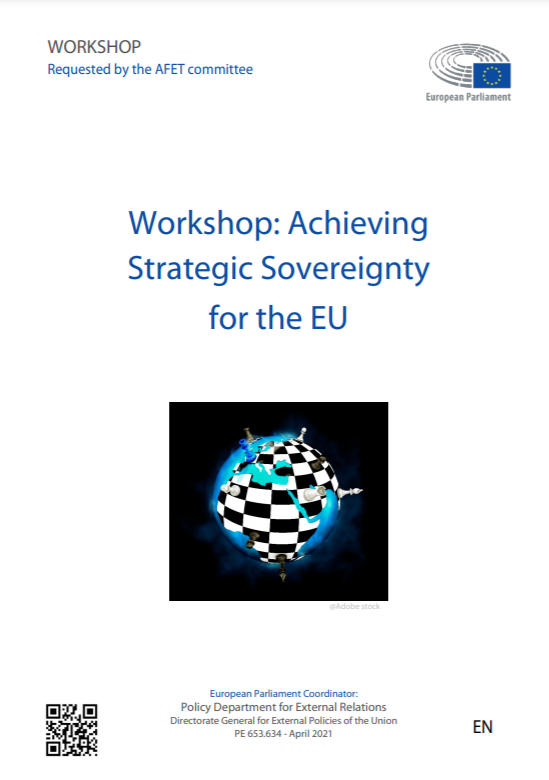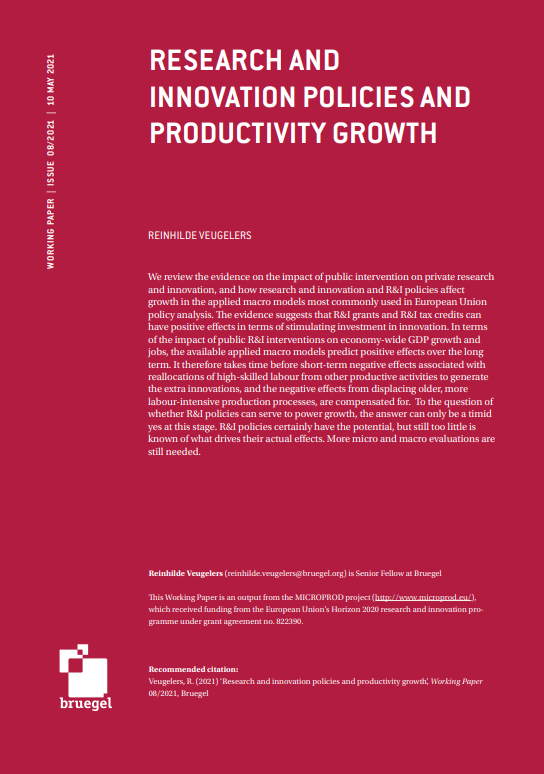Blueprint
Manufacturing Europe’s future
‘Manufacturing Europe’s future’ means getting the policies right for firms to grow and prosper. It is not about picking one sector over another, but primarily about setting the right framework conditions for growth, innovation and jobs.
edited by Reinhilde Veugelers
Publication Launch ‘Manufacturing Europe’s Future‘
‘Industrial policy is back!’ This is the message given in the European Commission’s October 2012 communication on industrial policy (COM(2012) 582 final), which seeks to reverse the declining role of the manufacturing industry, and increase its share of European Union GDP from about 16 percent currently to above 20 percent. Historical evidence suggests that the goal is unlikely to be achieved. Manufacturing’s share of GDP has decreased around the world over the last 30 years. Paradoxically, this relative decline has been a reflection of manufacturing’s strength. Higher productivity growth in manufacturing than in the economy overall resulted in relative decline. A strategy to reverse this trend and move to an industrial share of above 20 percent might therefore risk undermining the original strength of industry – higher productivity growth.
This Blueprint therefore takes a different approach. It starts by looking in depth into the manufacturing sector and how it is developing. It emphasises the extent to which European industry has become integrated with other parts of the economy, in particular with the increasingly specialised services sector, and how both sectors depend on each other. It convincingly argues that industrial activity is increasingly spread through global value chains. As a result, employment in the sector has increasingly become highly skilled, while those parts of production for which high skill levels are not needed have been shifted to regions with lower labour costs.
But this splitting up of production is not driving the apparent manufacturing decline.Participation in global value chains within Europe is strongly EU-oriented with a central position for the EU15 and in particular Germany in EU manufacturing. This internationalisationof production has resulted in deeper integration of EU manufacturing,withmember states specialising in sectors according to their comparative advantage.It has therefore helped to raise productivity and growth. As a result, the foreign content of countries’ exports has increased. Germany, in particular, has been able to benefit from the greater possibilities to outsource parts of production to central and eastern Europe and to emerging markets, and is in fact one of the countries with the smallest manufacturing share declines in the last 15 years. The Blueprint also highlights the importance of energy for the structure and specialisation of manufacturing.
Capital-intensive manufacturing faces both urgent challenges and medium-term challenges. In the short-term, one of the most pressing problems is the fragmentation of financial markets in Europe,which undermines access to finance. This affects small to medium-sized firms in particular because they are the most dependent on bank credit. In some southern European countries, even the financing of working capital is endangered. It should therefore be a high priority for policymakers to fix Europe’s banking problems and create better functioning capital markets, including for venture capital.
A second important conclusion is that, given the strong links between innovation,internationalisation and firm productivity, it is important to erase the dividing lines between industrial policy, single market policy, ICT policy and service sector policy. A highly integrated economic system needs a coherent set of policies that aim at improving business conditions everywhere. Attempts to promote one sector at the expense of another one are likely to result in significant inefficiencies and weaker overall growth. Governments are notoriously bad at picking winners. Instead, Europe needs policies that are conducive to a better business climate, less-burdensome regulations and the right framework conditions.
Third, public policies need to be more supportive of industry and other parts of the economy. For example, the education system is of central importance for the economy and needs to be adapted to the needs of modern economies. The single market is important for both manufacturing and services and progress is needed to unleash its potential for growth. Reducing trade barriers is particularly important for industrial firms that increasingly rely in global value chains. Distortions in energy prices are also detrimental to industrial activity and should be avoided.
‘Manufacturing Europe’s future’ therefore means getting the policies right for firms to grow and prosper. It is not about picking one sector over another, but primarily about setting the right framework conditions for growth, innovation and jobs.
Guntram Wolff, Director of Bruegel
Brussels, September 2013
